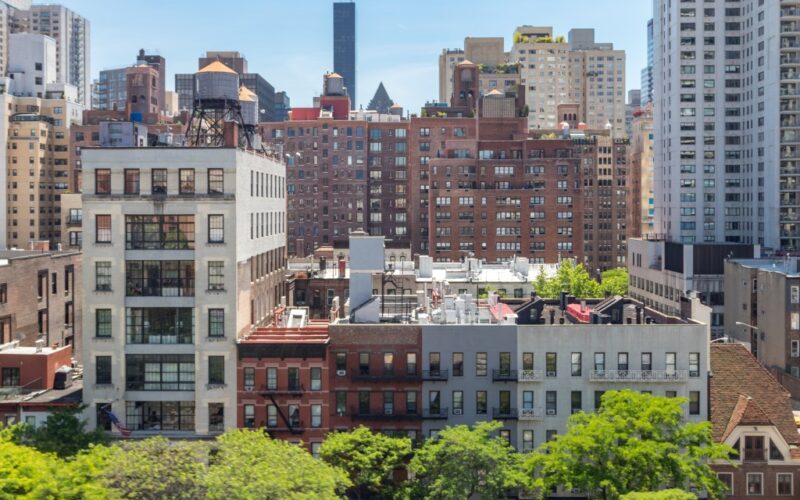Much work has been done by the City Council to address New York’s housing crisis and strengthen protections for renters and homeowners. In the midst of a historic housing crisis, lawmakers have slowly but surely clawed back homes for New Yorkers, not corporate landlords or tourists.
But this fight hasn’t come without opponents. Airbnb has fought tooth and nail for years to prevent, obstruct, and overturn laws that would keep homes from the people who live and work here. Airbnb’s latest attempts, Intros 948-A and 1107-A, are last-ditch efforts to undo so much of that work.
Central to their fight is Local Law 18, which Council members passed to place safeguards on the lawless short-term rental industry and enforce against illegal vacation rentals. After fighting the law for two years, Airbnb is back with a last-minute push to dismantle those protections piece by piece before a new Council and mayor are sworn in.
The proposed bill makes a series of “minor” changes that, taken together, would re-legalize the commercial short-term rental activity Local Law 18 shut down. The bill removes the most basic requirement for short-term rentals — that hosts are present when renting to temporary guests — for all one- and two-family homes.
It also increases the number of guests who can stay in a short-term rental, allowing up to four adults and an unlimited number of children while owners are away. And it removes any cap on the number of days a host can be away from their property, paving the way for unlimited short-term stays.
The bill also authorizes interior deadbolts, allowing hosts to withhold and lock access to living areas — which the Fire Department and safety advocates have explicitly opposed. Profit first, safety and community last.
These omissions are designed to look like minor tweaks. Many of them were included in a previous version of Airbnb’s bill, Intro 1107, which the Council recognized the danger of and gutted at the urging of everyday New Yorkers. Intro 948 repackages those discredited changes into one, with some even uglier additions meant to upend decades of settled housing law.
The most troubling provision is a new change that lies deeper in the text — an expansion of the very definition of “family.” On its face, the change may sound harmless. But it’s a sweeping reclassification that would impact nearly every single residential unit in New York City.
And by changing the requirement that hosts are “exclusively” present to “primarily” present when renting, the bill would allow speculators to buy homes, claim it as their primary residence, and convert them to full-time, luxury short-term rentals while they spend their time elsewhere.
It’s easy to see where this leads. Under these bills, nearly every unit of permanent housing could be converted to a short-term rental when no resident is present. That would explicitly encourage large-scale investors and private-equity firms to buy rental properties from the very homeowners Airbnb is promising to protect. It would lead to an explosion of short-term rentals again, to the detriment of both renters and homeowners.
New York City is home to roughly 319,000 renter-occupied one- and two-family homes — around 15% of the city’s entire rental stock. Many are located in working- and middle-class neighborhoods in the outer boroughs, where small-scale rentals remain an important source of affordable housing. Allowing these homes to be repurposed for tourists would hollow out those neighborhoods, drive up local rents, and destabilize the same communities already bearing the brunt of New York’s affordability crisis.
None of this is to say that the city should ignore homeowners’ financial pressures. We can and should support homeowners through targeted relief that actually helps them, such as property tax reforms, low-interest home repair loans, and more.
But this bill isn’t about helping homeowners cover the mortgage. It’s about recreating the same shadow hotel market that Local Law 18, and decades of housing law before it, were designed to stop.
For years, New Yorkers have watched helplessly as speculative investors, and private equity vultures hollowed out our neighborhoods and turned communities into commodities. Local Law 18 was the city’s promise to do better — to put people before profit, and to preserve housing for New Yorkers first. Intro 1107-A and Intro 948-A both break that promise.
The Council has made real strides to make this city more affordable and end the crisis of unaffordable housing. The best way for them to continue that work is to reaffirm that New York’s homes exist foremost to house New Yorkers. The Council should reject Airbnb’s rollback and proudly ensure our homes remain for living, not for listing.
Desir is an attorney at the Legal Aid Society.








